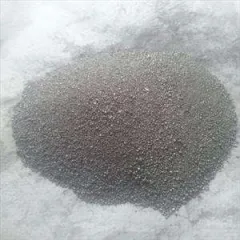If you are looking for high-quality products, please feel free to contact us and send an inquiry, email: brad@ihpa.net
Molybdenum Carbide: A Leader in High-Performance Catalytic Materials and Future Energy Applications
Molybdenum carbide (Mo ₂ C), as an unique transition steel carbide, displays remarkable physical and chemical residential properties, making it an outstanding driver in different reactions, specifically in hydrogen production and carbon dioxide decrease, with wide application prospects. Mo ₂ C is composed of molybdenum (Mo) and carbon (C), including a high melting point (~ 2690 ° C), outstanding electric conductivity, thermal security, and mechanical stamina. Most notably, its surface is rich in active sites that can properly adsorb and turn on particles, making it a suitable catalytic product. Top Quality Mo ₂ C can be prepared utilizing approaches such as straight carburization, chemical vapor deposition (CVD), sol-gel process, and microwave-assisted synthesis. These advanced strategies provide a solid structure for exploring Mo ₂ C’s potential in several applications.
(Molybdenum Carbide Powder)
In recent times, research study has shown that Mo ₂ C excels in multiple areas, consisting of efficient hydrogen development response (HER) drivers, outstanding CO ₂ decrease catalysts, exceptional hydrodesulfurization (HDS) performance, and exceptional lithium-ion battery anode products. For example, in acidic settings, Mo ₂ C can achieve rapid and stable water splitting to create hydrogen with low overpotential and Tafel slope near theoretical values. In converting carbon monoxide ₂ into important chemicals like formic acid or methanol, Mo ₂ C demonstrates high selectivity and conversion effectiveness. Throughout oil refining, Mo ₂ C can complete HDS reactions at lower temperatures with higher selectivity and task. As a lithium-ion battery anode, it provides greater capacity and cycle life. These research searchings for have actually considerably moved the industrial application of Mo ₂ C from laboratory settings.
Mo ₂ C showcases substantial applications across different industries. In hydrogen production and storage space, the Dalian Institute of Chemical Physics, Chinese Academy of Sciences, developed an effective electrolyzer based on Mo ₂ C nanosheet arrays, achieving secure water splitting at room temperature level, lowering power intake, and boosting hydrogen purity. For tidy energy conversion, Stanford College produced a photoelectrochemical tool composed of Mo ₂ C nanowires that can directly convert carbon monoxide ₂ into liquid gas under light problems, minimizing greenhouse gas emissions while offering clean fuel sources. In environmental protection, the Max Planck Institute for Strong State Study discovered that Mo ₂ C-modified activated carbon fibers dramatically enhance SO ₂ capture performance and are quickly restored for repeated use. In addition, in brand-new power storage space tools, scientists at KAIST reported a sodium-ion battery utilizing Mo ₂ C as the anode product, identified by fast charge-discharge rates, exceptional cycle security, and power thickness going beyond 400 Wh/kg, assuring for future wise grids and electric automobiles.
()
Regardless of substantial accomplishments in Mo ₂ C materials and related modern technologies, difficulties continue to be in sensible promo and application, such as price problems, large-scale production innovation, environmental kindness, and standardization. To overcome these barriers, constant development and enhanced cooperation are necessary. On one hand, strengthening basic study to discover new synthesis techniques and enhance existing processes can constantly reduce manufacturing costs. On the various other hand, developing and improving sector requirements promotes collaborated advancement amongst upstream and downstream firms, developing a healthy and balanced ecosystem. Colleges and study institutes must raise academic financial investments to grow even more premium specialized talents. In recap, Mo ₂ C, as a highly promising high-performance catalytic material, is progressively changing various elements of our lives. With recurring technological maturity and excellence, Mo ₂ C is expected to play an irreplaceable function in increasingly more areas, bringing more benefit and benefits to human society in the coming years.
TRUNNANO is a supplier of Molybdenum Carbide with over 12 years of experience in nano-building energy conservation and nanotechnology development. It accepts payment via Credit Card, T/T, West Union and Paypal. Trunnano will ship the goods to customers overseas through FedEx, DHL, by air, or by sea. If you want to know more about Molybdenum Carbide, please feel free to contact us and send an inquiry(sales8@nanotrun.com).
All articles and pictures are from the Internet. If there are any copyright issues, please contact us in time to delete.
Inquiry us







